Whether it's staying warm in the cold, coping with your period, or even making the perfect cup of tea, science can help you out. We've collected our top tips from experts in our monthly column, A Scientist's Guide to Life.
How to get a good night’s sleep
Advice from sleep scientist Prof Alice Gregory at Goldsmiths, University of London
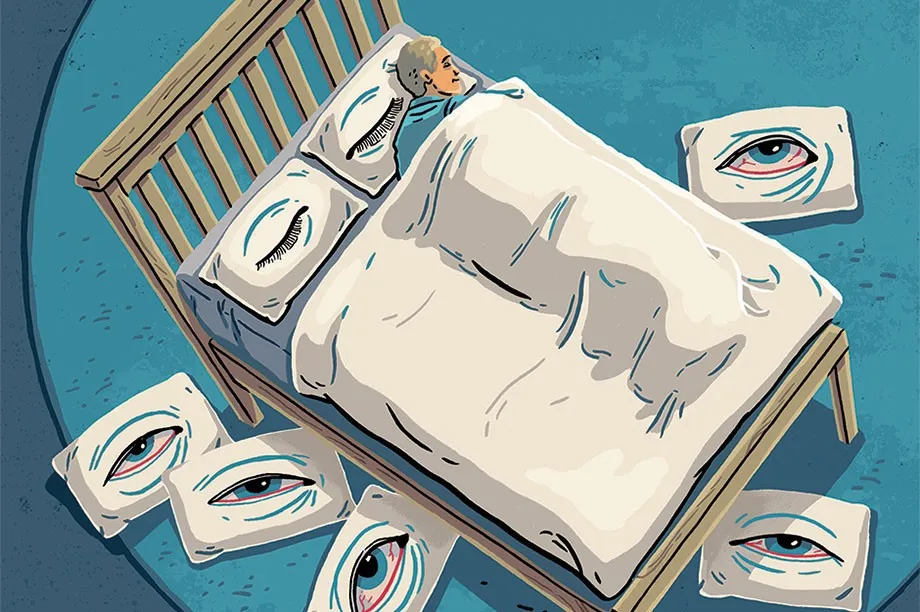
If you can’t sleep, get up and do something different
It’s normal to wake up during the night, but most people just fall straight back to sleep without realising it.
If you can’t get back to sleep easily, or if you struggle to nod off in the first place, don’t just lie there. Get up and do something else. It’s important to associate bed with sleep and not with being mentally awake.
Stick to consistent bedtimes and waking times – yes, even at the weekend!
Stick to a routine with a consistent bedtime and waking time. Your body needs to know what it should be doing and when it should be doing it.
This is important for all of us, including babies and young children. If the evening always goes ‘story, bath, bed’, then they know what to expect.
Don’t nag teens for being lazy, their body clocks are different from adults’
Adolescents aren’t being lazy. They’re doing exactly what their biology is requesting of them – staying awake and getting up later. It’s a real shame that schools demand such an early start time.
During lockdown and the summer holidays, many teenagers were able to revert to their natural sleep pattern, so it prompts the question, is it time for a change?
- Read Prof Alice Gregory's full advice on how to get a good night's sleep
How to survive a hangover
Advice from health psychologist Dr Sally Adams of the University of Bath
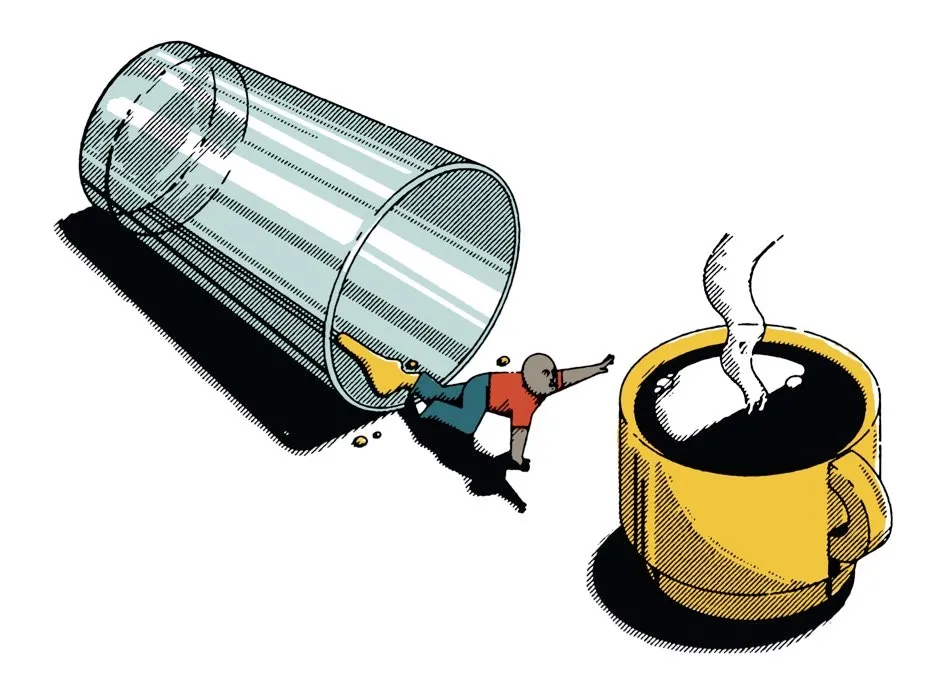
Some of us may be destined to get bad hangovers, thanks to genetics
The severity depends on lots of things, including your weight and what you’ve eaten that day. Genetics also plays an important role.
It might be boring, but the only way to avoid a hangover is to drink in moderation
Drink in moderation. That’s the only way. Eating a fatty meal before you go out drinking might also help because it can slow down the absorption of alcohol into the bloodstream.
Stay away from the hair of the dog
Hair of the dog prolongs the inevitable. It’s not a good idea to treat a hangover with more booze.
Fry-ups might aid with metabolising alcohol. Eggs and bacon contain an amino acid called cysteine, which helps to break down the acetylaldehyde that is produced.
There’s no evidence that exercise can help a hangover. What might happen is that you become more dehydrated, which could make you feel even worse.
- Read Dr Sally Adams's full advice on how to survive a hangover
How to look after your skin
Advice from consultant dermatologist Dr Bav Shergill

Most people don't need lots of products
Less is more. Most people don’t need anything more than a basic cleanser and moisturiser, and sunblock if you’re going outside.
Expensive isn’t necessarily better, but look for key ingredients if you have certain needs
There’s some interesting psychology going on here. Sometimes, we pay extra for the branding, the packaging and the ethos, and we value things more because they’re expensive.
If you have specific needs, it might be worth paying a bit more. Products that contain vitamin B3, for example, are excellent for people with brown patches of skin known as ‘melasma’.
Eat healthily and don’t drink too much alcohol if you want your skin to look its best
If your body is dehydrated, your skin will be too. Keep hydrated and eat a healthy diet. Foods or supplements that contain vitamin C and E are good because they’re antioxidants that prevent damage from free radicals.
- Read Dr Bav Shergill's full advice on how to look after your skin
How to make the perfect cup of tea
Advice from food scientist Dr Stuart Farrimond
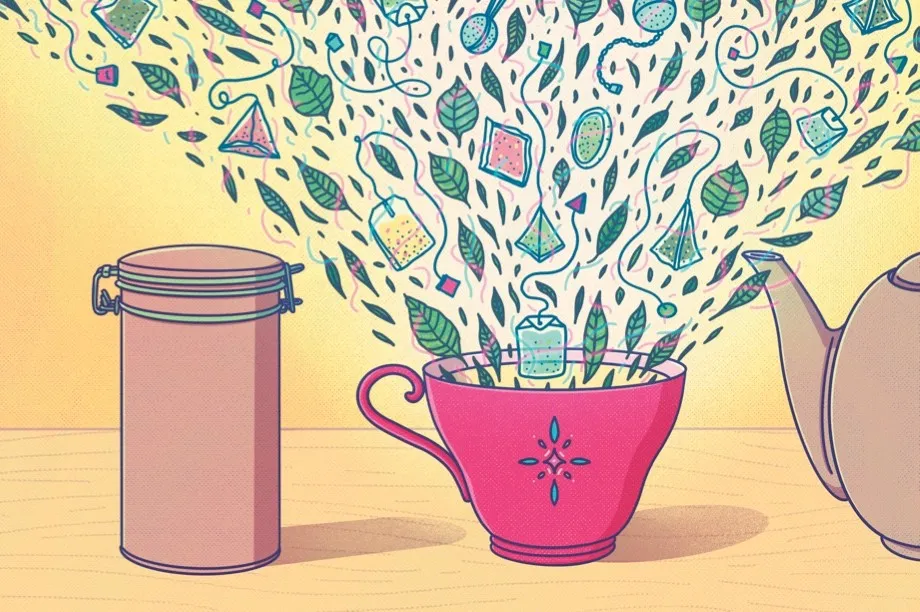
If you use reusable cups, opt for ones made from ceramic or glass
Make it in a mug or a tea cup. Avoid disposable Styrofoam cups. They’re the worst. Styrofoam is porous so it will absorb some of the flavour compounds and affect the taste.
If you’re on the go, opt for reusable cups made from inert materials like ceramic or glass. Plastics can absorb flavours over time, so will kill the flavour of what you’re drinking.
Oat milk is a good dairy alternative to add to your tea and coffee
Non-dairy milk is good, although you can’t call it ‘milk’ – it’s basically nut juice! I’m doing some research on this at the moment, but the take-home message is that oat milk tends to have a good flavour profile for mixing with teas and coffees.
Let your tea brew for a little longer to get the best flavour profile and an antioxidant hit
Most people let their tea brew for around two minutes, but five minutes is ideal. It’s too hot to drink before then anyway, and the extra time means your tea will have more flavour and antioxidants. Warning – if you leave the bag in for too long, you’ll also end up with more tannin molecules, which can make the tea taste bitter.
When we did research as part of BBC Two’s Inside The Factory programme, we found that the antioxidant levels were 13.9mg with a 30-second brew, but were more than double that after a five-minute brew.
- Read Dr Stuart Farrimond's full advice on how to make the perfect cup of tea
How to beat a cold
Advice from common cold expert Prof Ron Eccles of Cardiff University

Enjoy lots of hot, tasty drinks and soups
Hot blackcurrant cordial is great at easing coughs and sore throats, but it can be any hot flavoured drink. Honey and lemon is good. The tastier the better as this helps to promote salivation and mucus secretion, which lubricates and soothes the throat.
Soup is hot and tasty so that works well, but research shows that sweet tastes are good because they help inhibit coughs. Bitter-tasting things don’t do that.
Also, conventional shop-bought cold remedies can only be taken once every six hours or so, but you can have as much hot cordial or soup as you like.
Painkillers and decongestant sprays are just as good as pricier all-in-one products
Take an analgesic, like paracetamol or ibuprofen, for the sore throat, aches and chills, and a nasal decongestant spray, to relieve the stuffiness. The nasal spray is great because it works within minutes and the effects last for eight hours, so it can take you right through the night.
It might be easier to buy an over-the-counter remedy that contains all these ingredients, but it will be more expensive and it won’t necessarily be better. The syrups and powders that you buy contain a different decongestant called phenylephrine, which is of questionable efficacy.
Treat yourself to something fun
Treat yourself to a something you'll enjoy. If you dwell on your symptoms, you’ll only feel worse, but if you get out the house (if possible) and distract yourself, your cold won’t feel so bad.
- Read Prof Ron Eccles's full advice onhow to beat a cold
How to cope with your period
Advice from menstrual researcher Sally King, a PhD student at King's College London

Don’t worry if your cycle is not 28 days
The biggest myth about periods is that the menstrual cycle repeats itself regularly every 28 days. This is the average length, but there’s a huge healthy range, from 21 to 40 days, and the length typically varies by two to four days each time.
It’s a problem because people whose periods don’t fit into a 28-day pattern can feel like there’s something wrong.
There’s no need to take a break from the pill if you’re happy with it and doing well
If you’re on the pill and doing well, there’s no reason to have a health break. Some people worry that the pill can damage future fertility, but this isn’t true. It can take time to get pregnant after coming off the pill but most people regain their natural cycle after three to four months.
Ibuprofen not only helps with pain of cramps, it can also reduce blood flow
Anti-inflammatories, like ibuprofen, really help with period pain. Not many people realise this, but the time to start taking ibuprofen is two to four days before you expect to start your period.
If you do this, it not only reduces cramping, it also reduces the amount of blood you lose. This can make a big difference for people with painful, heavy periods. Magnesium supplements can help, as can more traditional approaches like exercise and hot water bottles.
- Read Sally King's full advice on how to cope with your period
How to sit correctly
Advice from back pain researcher Dr Kieran O’Sullivan at the University of Limerick.
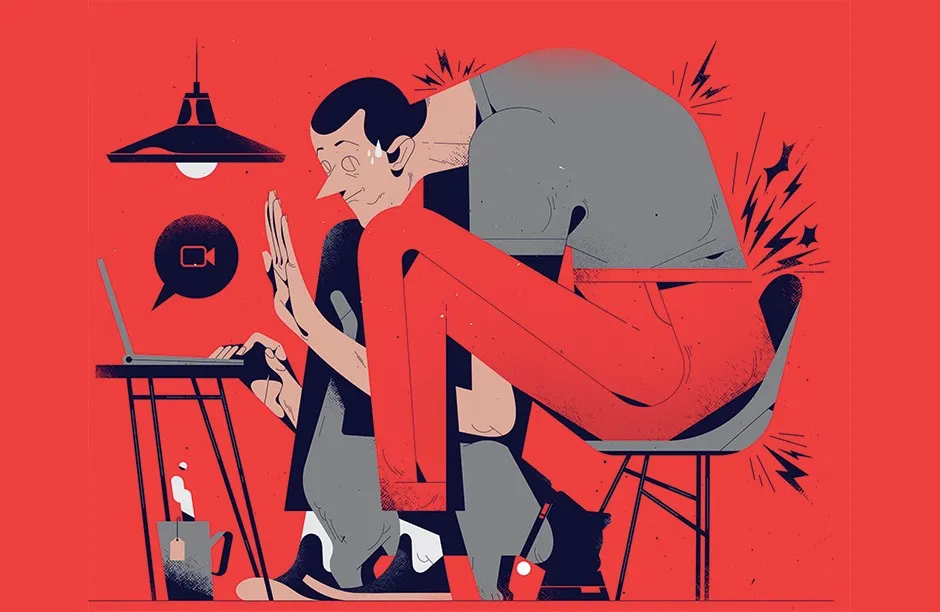
Slouching and bad posture will not cause chronic back pain
People think that sitting upright is good and slouching is bad, but it’s a myth. There’s no evidence to support this.
A big study in Australia, for example, found that if you follow people through life, the ones who develop chronic back pain aren’t the ones who were slouching or who had poor posture. Genetics, anxiety, sleep patterns and stress all play a role.
Standing desks are not a silver bullet for back problems, and can lead to persistent pain
Although they’ve become popular and work well for some people, standing desks are not for everybody. The evidence tells us that you get as many people with persistent pain from standing all day, as you do from sitting all day.
To protect your back, stay healthy, sleep well, and keep moving
If you want to have a healthy back in later life, try not to think about it too much now. Try to live a healthy life. Get a good amount of sleep, manage your stress and do some exercise that you can afford and enjoy.
- Read Dr Kieran O’Sullivan's full advice on how to sit correctly
How to stay warm
Advice from physiologist Dr JohnEric Smith at Mississippi State University.
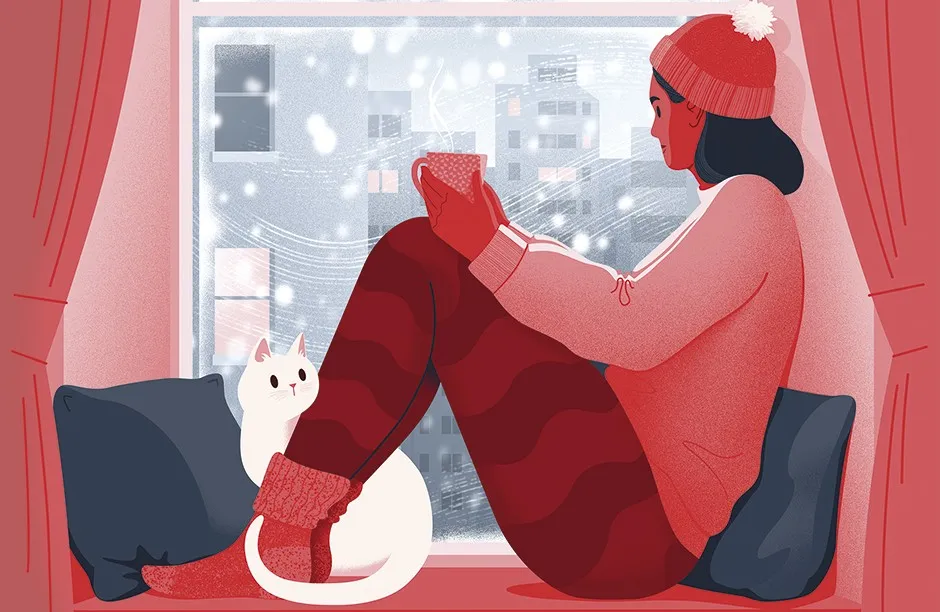
Wear lots of layers – they’ll trap heat to help you stay snug
Layering is critical. It acts as insulation because it traps warm air close to the body. Layers are easy to put on and peel off, helping you react quickly to changes in temperature.
Wear a hat
The head doesn’t lose heat more rapidly than the rest of the body. If you wore a hat and nothing else, you’d still lose heat from everywhere else! That said, it’s the one area we often leave uncovered in the cold, so wearing a hat is still a good idea.
Your mum was right! Take your coat off when you get inside
If you wear a coat indoors and get really warm, blood gets diverted to the skin to help cool you down. If you then go outside, the cold air will sap this heat from your skin and leave you feeling colder than you would do otherwise.
- Read Dr JohnEric Smith's full advice on how to stay warm
How to eat a good breakfast
Advice from nutritionist Dr Leonie Ruddick-Collins at the University of Aberdeen

Read the labels of cereals, and check portion sizes
Many breakfast cereals are laden with sugar. For some, sugar makes up more than a third of the total content. Look carefully at the labels. A low-sugar product contains less than 5g of sugar per 100g. Go for low-sugar, fibre-filled cereals, like Weetabix, oats and bran flakes.
Be aware that although it’s healthy, muesli is calorie-dense, so watch the portion size. Have a small bowlful with yoghurt, to help you get the right balance of fibre, iron and calcium.
If you love a fry-up, use healthy oils and fill up on tomatoes, baked beans, mushrooms and eggs
It's absolutely possible to have a healthy fry-up. It’s about how you cook it. Use a healthy oil, or grill it, and don’t go overboard on portion size.
A bit of bacon every now and then is fine, just remove as much fat as you can. Baked beans are fantastic in the morning, so are eggs, mushrooms and tomatoes.
Your mum was right – it’s good to breakfast like a king
The typical UK style of eating is to consume 48 per cent of your calories at dinner, and just 16 per cent at breakfast, but studies suggest that if we eat more in the morning, and less later in the day, it can help with weight loss. This makes sense because the body is primed to eat early in the morning to give us energy to get through the day.
In the evening, the body prepares itself for an overnight fast. It breaks down its stored energy, like fat and glucose, to use as fuel while we sleep. Late eating may interfere with this process. So, if you’re trying to lose weight, maybe a bigger breakfast is the way to go.
- Read Dr Leonie Ruddick-Collins's full advice on how to eat a good breakfast
How to embrace boredom
Advice from psychologist Dr Sandi Mann at the University of Central Lancashire

On your commute, turn off the music and let your mind wander
The paradox is that we need to introduce more boredom into our lives in order to become less bored.
Have a digital detox. Swim. Go for a walk without music. If you’re on a train, look out of the window.
Hide the chocolate and crisps if you’re going to be working on a boring project
Research has shown that eating chocolate is one of the most common things we do when we’re bored.
We gave bored people a choice of snacks, and found that they rarely chose the healthy option. It’s because you get more of a dopamine hit from fatty foods.
It could be worse though. Some people have committed murder out of boredom.
If your kids moan that they’re bored, tell them to entertain themselves
Parents are under so much pressure to be perfect. If we’re not educating and stimulating our children, then we feel we’re failing. Take that guilt away: it’s okay to let your children make their own entertainment.
Avoid giving them too much choice. Research for an airline company, who wanted to find ways to keep kids entertained on long flights, found that when you give kids a whole bag of toys, they pick up each thing, play with it for a few seconds, then put it down. But if you give them one thing at a time, they spend much longer with it.
Also, when they were given something ‘boring’ like a notepad and pen, and nothing else, they were amazing! They wrote and drew stories and kept themselves busy for ages. Sometimes the best toys can be simple.
- Read Dr Sandi Mann's full advice on how to embrace boredom
How to stay safe in the Sun
Advice from dermatologist Prof Brian Diffey at Newcastle University

Even if you’re sitting in the shade, you should still apply sunscreen
Ultraviolet (UV) light is scattered in the atmosphere. When you’re in the open, half the UV rays reaching your skin come directly from the Sun. The rest is scattered UV that comes from the sky. If you’re in shade, you’re still exposed to this scattered UV.
Expensive sunscreen doesn’t equal better protection
Expensive sunscreens are not necessarily better than budget ones. You’re not paying for better protection. You’re paying for aesthetics. These products might smell or feel better, but it’s all down to individual preference.
Go for mid-range products made by reputable manufacturers.
Don’t rub it in. You need a layer of Sun protection on top of your skin
Sunscreen works by forming a barrier between the Sun’s rays and the living cells of your skin.
Don’t rub it in vigorously because that forces it deeper into the skin, and you end up exposing the vulnerable cells near the surface. You want it to rest on the surface of your skin, so spread it smoothly, then let it dry.
- Read Prof Brian Diffey's full advice on how to stay safe in the Sun